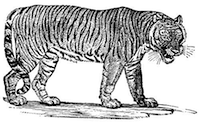Lament for Donoch an Bhaile-aodha

Listen to Lament for Donoch an Bhaile-aodha
Sign in or sign up to favourite this tune.
History
tunes, plough whistles, &c.
voice up to a third, fifth, or octave--a common practice in laments, nurse
about a crotchet. Occasionally he ended the cronaun by suddenly sliding his
prolonged ad libitum: the change from ee to oo being made at intervals of
repetition of the two vowel sounds, ee-oo ee-oo ee-oo, &c., which was
chanted, in monotone, a sort of cronaun consisting simply of the continued
learned of course from older people:--To the note D at the end of the air he
As to Phil Gleeson's traditional manner of singing the ode--which he
Carrigaline, 8 miles S.E. of Cork.
commemorate the death of Donogh Mac Carthy of Ballea Castle near
commonly called Tadhg Gaodhlach, "Timothy of the Irish Compositions," to
a well-known Munster Gaelic poet of the 18th century, Timothy O'Sullivan,
found in Hardiman's "Irish Minstrelsy," vol. ii, p. 272. It was composed by
me by Phil Gleeson: but there is no need to give it here, as it will be
The Irish ode, or lament, of which the following is the air, was sung for
This tune
This tune has these features. Click on any of them to find tunes that match. For a more detailed search, take a look at the kinds of information page.
Song air One title Only 1 transcription major D 2/4 Has history text No chords explore more...
ABC
You can learn more at abcnotation.com.
X:3513
T:Lament for Donoch an Bhaile-aodha
O:england
B:Joyce, P. W.; "Old Irish Folk Music and Songs"
R:song air
H: The Irish ode, or lament, of which the following is the air, was sung for
H:me by Phil Gleeson: but there is no need to give it here, as it will be
H:found in Hardiman's "Irish Minstrelsy," vol. ii, p. 272. It was composed by
H:a well-known Munster Gaelic poet of the 18th century, Timothy O'Sullivan,
H:commonly called Tadhg Gaodhlach, "Timothy of the Irish Compositions," to
H:commemorate the death of Donogh Mac Carthy of Ballea Castle near
H:Carrigaline, 8 miles S.E. of Cork.
H: As to Phil Gleeson's traditional manner of singing the ode--which he
H:learned of course from older people:--To the note D at the end of the air he
H:chanted, in monotone, a sort of cronaun consisting simply of the continued
H:repetition of the two vowel sounds, ee-oo ee-oo ee-oo, &c., which was
H:prolonged ad libitum: the change from ee to oo being made at intervals of
H:about a crotchet. Occasionally he ended the cronaun by suddenly sliding his
H:voice up to a third, fifth, or octave--a common practice in laments, nurse
H:tunes, plough whistles, &c.
M:2/4
K:D
L:1/8
"Slow"d|ff gg|aa ga|f3 d|ff fd|fe dd|Hd3||d|
aa ga|fe/d/ cd|{e/}Hf3 {g/e/e/d/}d|ff fd|
e>dc/A/ FG/E/|E4||d2 d2|d2 d2|d2 d2||
This transcription was found:
